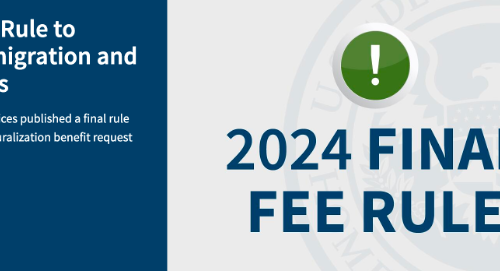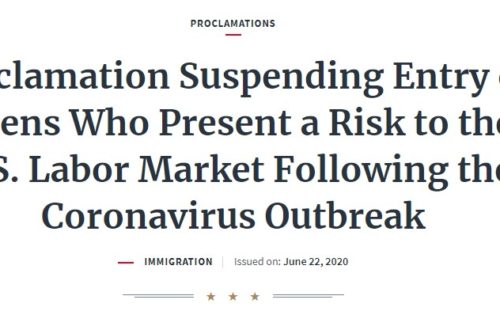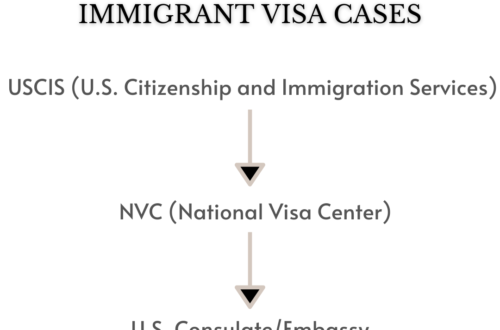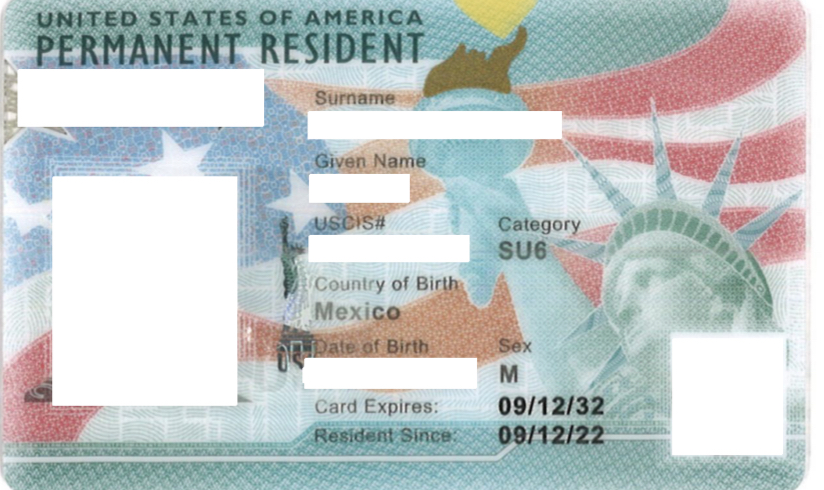-
The Department of Homeland Security Announces Parole-in-Place Process That Will Offer A Pathway to A Green Card for Undocumented Spouses of U.S. Citizens
On June 18, 2024, the Department of Homeland Security (DHS) made a big announcement and introduced a new parole-in-place process for certain noncitizen spouses of U.S. citizens who meet specific criteria. *IMPORTANT NOTE* – As of the date of this blog post, this process is NOT in effect, and there is NO application process for it yet. Do not apply for it, and if someone is telling you they can help you apply for it right now and submit an application, it is not true. Here is a summary of who would qualify for this process and what immigration benefits it will offer: If an individual qualifies for this process,…
-
The Dignity Act of 2023: A New Immigration Bill Explained
Representative Maria Elvira Salazar (R-Florida) introduced this immigration bill in the House of Representatives on May 23, 2023. This bill was created by both Democrats and Republicans to address various aspects of immigration law in the United States. It addresses border security, border infrastructure, grants legal status to undocumented immigrants already living in the United States with the possibility of getting citizenship, establishes new pathways for asylum seekers, and creates new legal pathways for economic migrants and unaccompanied minors. Below is a summary of the bill. Border Security: The bill would provide funds for upgrading technology and equipment used by the US Customs and Border Patrol (CBP). This includes things like…
-
K-1 Fiancé(e) Visa and Protection Under the Violence Against Women Act (VAWA)
In this post, we will explore two special cases in family-based immigration: fiancé(e) visas and protection under the Violence Against Women Act (VAWA). If you are a U.S. citizen and engaged to a foreign national, you can file a fiancé(e) petition, so your fiancé(e) can get a visa to come to the U.S., also known as the K-1 visa. This visa allows your fiancé(e) to enter the U.S., and you would have to get married within 90 days of your fiance(e) arriving in the U.S. To apply for a K-1 visa, the U.S. citizen petitioner must first file a Form I-129F, Petition for Alien Fiancé(e), with the USCIS. Once the…
-
What Your Obligations Are As An I-864 Financial Sponsor of An Immigrant
As an I-864 sponsor, you are financially responsible for the immigrant you are sponsoring. This means that if the immigrant receives certain means-tested public benefits or becomes dependent on the government for support, you may be required to reimburse the government for the cost of those benefits. A means-tested public benefit is a type of government assistance program that is based on a person’s income or financial resources. Examples of means-tested public benefits include Medicaid, Supplemental Nutrition Assistance Program (SNAP), Temporary Assistance for Needy Families (TANF), and Supplemental Security Income (SSI). When an immigrant receives means-tested public benefits, it can affect the financial responsibility of the I-864 sponsor. If the…
-
Can Working Without Authorization In the U.S. Prevent You From Getting A Green Card?
Working without authorization in the United States is a serious violation of U.S. immigration law, and can lead to you not being able to get a green card in the future. However, if you are married to a U.S. citizen and you’re getting your green card through your marriage, or you’re an “immediate relative” of a U.S. citizen, you can be forgiven for working without authorization assuming you did not claim to be a U.S. citizen when you applied for the job. This scenario comes up all the time with my clients, and it’s always something they worry and ask about, but the immigration laws actually automatically forgive this if…
-
The Green Card Process for Foreign Workers
I’ve met with many employers with the same issue – they are having a hard time finding workers. One potential solution is petitioning for foreign workers to fill those jobs. The process works and can fill a range of jobs from landscapers to cooks to hotel workers to tech jobs and everything in between. However, the caveat is that it will take time, and it can take even longer depending on where the foreign worker was born (nationals from India can end up waiting almost 10 years for a green card through an employer). My answer to employers who say that they need workers now and cannot wait long is…
-
USCIS Extends Green Card Extensions to 24 Months For Green Card Renewals
On September 28, 2022, USCIS announced effective September 26, 2022, they will automatically extend green cards for an additional 24 months for those who have filed for a renewal. Green card holders who have applied to renew their expired or expiring green cards will receive a 24-month extension notice, which used to be 12 months. For those who applied for renewal prior to September 26, USCIS should be sending new receipt notices to reflect the 24-month extension. To renew a green card, the earliest a renewal can be sent is within 6 months before the current green card expires. Almost all green card renewals are never approved within 6 months…
-
Which One Processes Faster? A Fiance(e) Visa or Spouse Visa?
I meet with many people who ask me if they should do a fiance visa or spouse visa if their significant other is not in the U.S. and will process at a U.S. consulate. Generally speaking, the fiance visa will be faster if the goal is to be together in the U.S. as soon as possible. Remember that once your fiance comes to the U.S. with the fiance visa (K1 visa), you must get married within 90 days of your fiance entering. Once you are married, the green card application can be filed, and your fiance would remain in the U.S. while that is processed. Eventually, an interview will be…
-
My Green Card Will Expire Soon, but I Filed for a Renewal. What Happens if I Don’t Get My Green Card Before My Current One Expires?
If your green card is going to expire soon, and you have already filed for renewal, what happens once your current green card does expire and you don’t have your new green card yet? Fortunately, you’ll be just fine. When you send in your renewal application, USCIS will send you a receipt notice confirming they have received the file and it’s processing. That receipt notice will also serve as an automatic 12-month extension of your current green card. If the expiration date on your green card shows October 1, 2022, that notice autonomically extends it for another 12 months. If you are in this situation and need to show proof…
-
USCIS Updated Policy on the 3-Year and 10-Year Unlawful Presence Bars
On June 24, 2022, USCIS issued new guidance on the 3 and 10-year bars and green cards, but this new policy will only apply to a limited group of people. You can go read my post here that goes into detail about these unlawful presence bars. A brief summary of the 3 and 10-year bar is this – if a person has been in the U.S. beyond their authorized period of stay for more than 180 days but less than a year and they leave, they will be barred from coming back to the U.S. for 3 years. If the person stays for more than 1 year beyond their authorized…

























